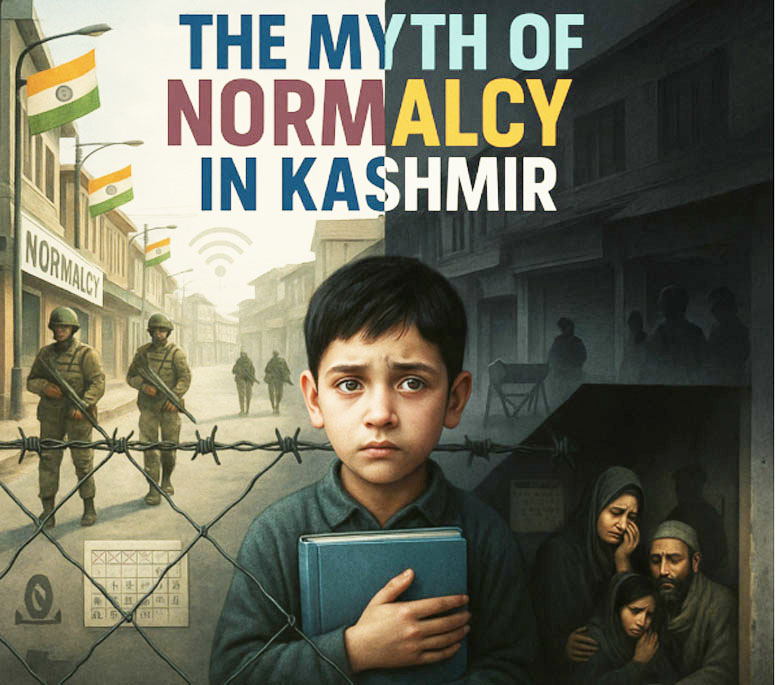
Moon Desk: The Indian government, under the Bharatiya Janata Party (BJP), continues to propagate the misleading narrative of normalcy in Indian-Occupied Jammu and Kashmir (IIOJK), despite overwhelming evidence to the contrary. This narrative is aimed not only at the Indian public but also at the international community in an attempt to mask the ongoing human rights violations, political repression, and denial of basic freedoms in the region. Failure to Suppress Kashmiri Aspirations
Since the revocation of Article 370 and 35 A in August 2019, the Indian BJP government has taken drastic steps to alter the political and demographic structure of Kashmir. However, these efforts have failed to suppress the Kashmiri people’s long-standing demand for plebiscite and the right to self-determination as recognized under UN Security Council Resolutions. The Kashmiri resistance remains resolute, despite decades of military occupation and repression.
Economic Deprivation and Militarized Misery
Beyond political repression, the people of IIOJK suffer from severe economic distress. Unemployment is rampant, especially among youth who have grown up in a heavily militarized conflict zone. The promises of “development” touted by Indian leadership remain unfulfilled, as locals continue to be denied access to their own resources, employment opportunities, and participation in administrative and policy-making roles.
Key sectors such as agriculture, handicrafts, tourism, and small businesses are deteriorating. Artisans, hoteliers, marginal traders, and contractors struggle under surveillance and huge imposed laws and taxes and fear of state violence. The situation continues to worsen without any significant intervention or support.
Draconian Laws and Systemic Repression
The Indian state has institutionalized repression through a range of draconian laws.
These laws give sweeping powers to Indian forces including army, paramilitary, police and agencies, shielding them from accountability. Thousands of Kashmiris have been arrested under these laws, often without trial. As of recent reports, over 3,000 Kashmiris remain detained under PSA and UAPA in various prisons in IIOJK and across India.
The Kashmir Bar Association and other human rights groups have documented widespread torture, fake encounters, and custodial killings. The Asian Centre for Human Rights and Association of Parents of Disappeared Persons (APDP) have reported that between 1989 and 2003 alone, 6,000 to 8,000 people disappeared in custody—figures also acknowledged in U.S. State Department reports.
Revocation of Identity and Demographic Engineering
India’s unilateral decision to abrogate Kashmir’s special status and introduce new domicile laws has enabled the settlement of non-Kashmiris mostly Indian forces, their families, labourer’s, bureaucratic, business men, students, employees, West Pakistan Refugees (WPR), Valmikis, a marginalised Hindu community, and Gorkhas have been provided with domiciles so far; new domicile laws were introduced in the region, an act widely condemned as demographic engineering. This policy directly violates the Fourth Geneva Convention, which prohibits an occupying power from transferring its own population into the territory it occupies.





